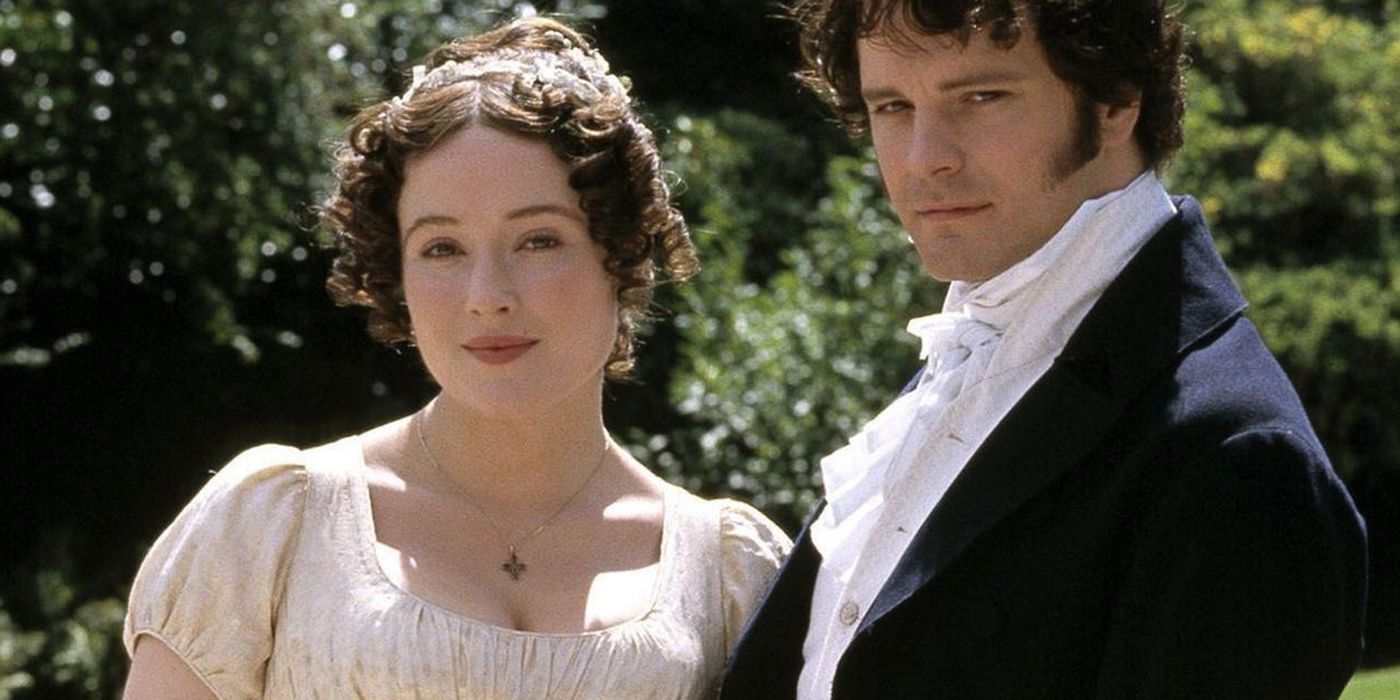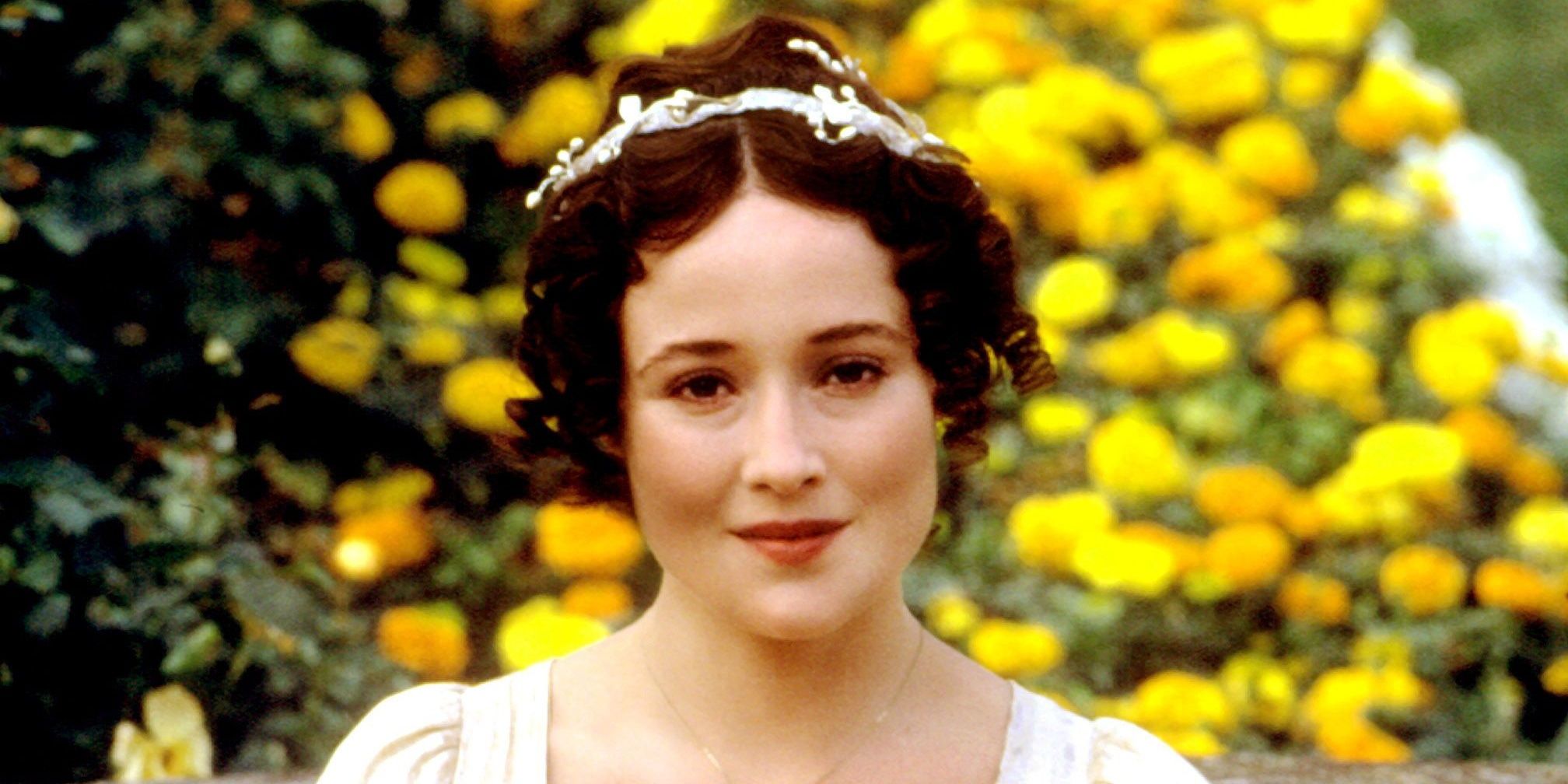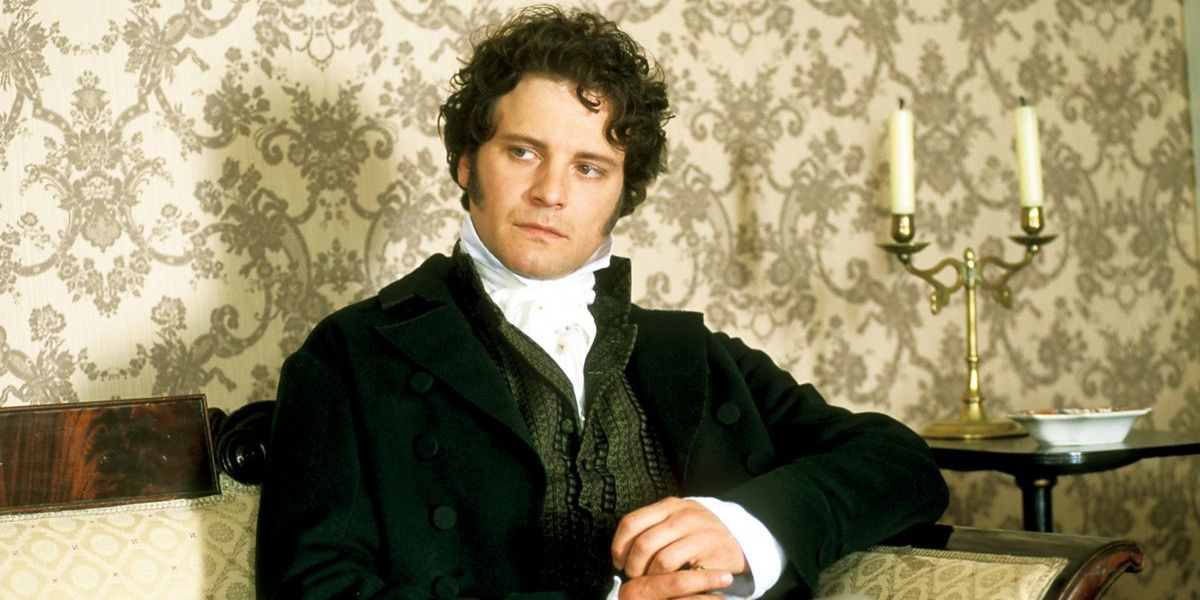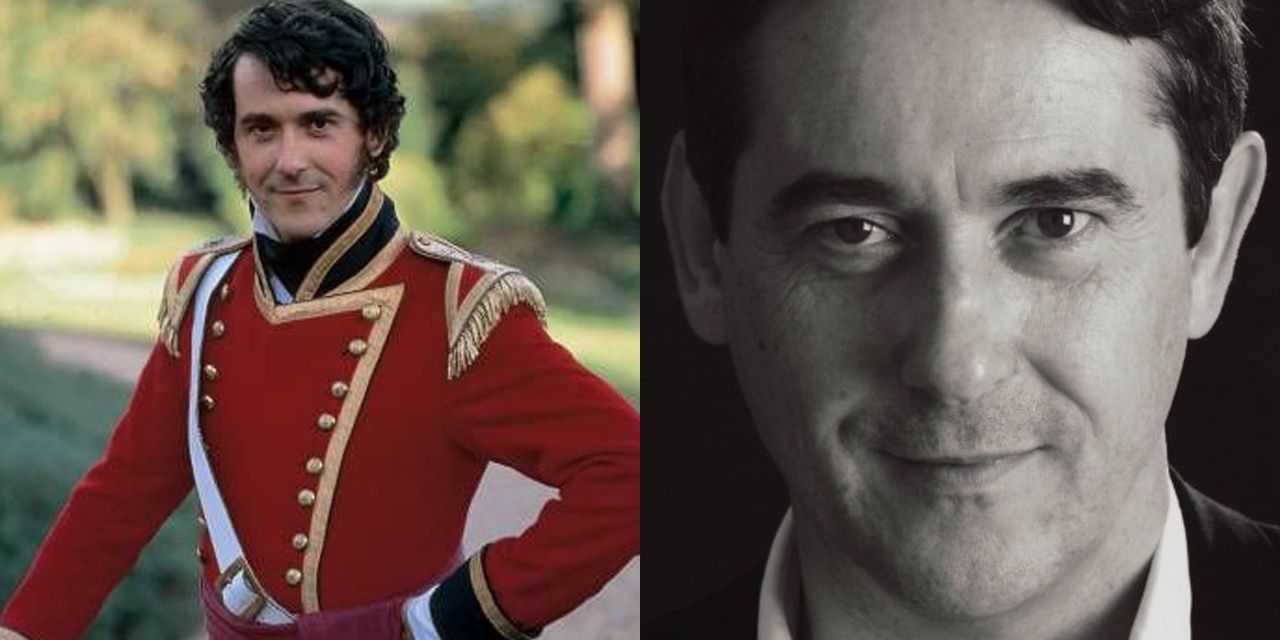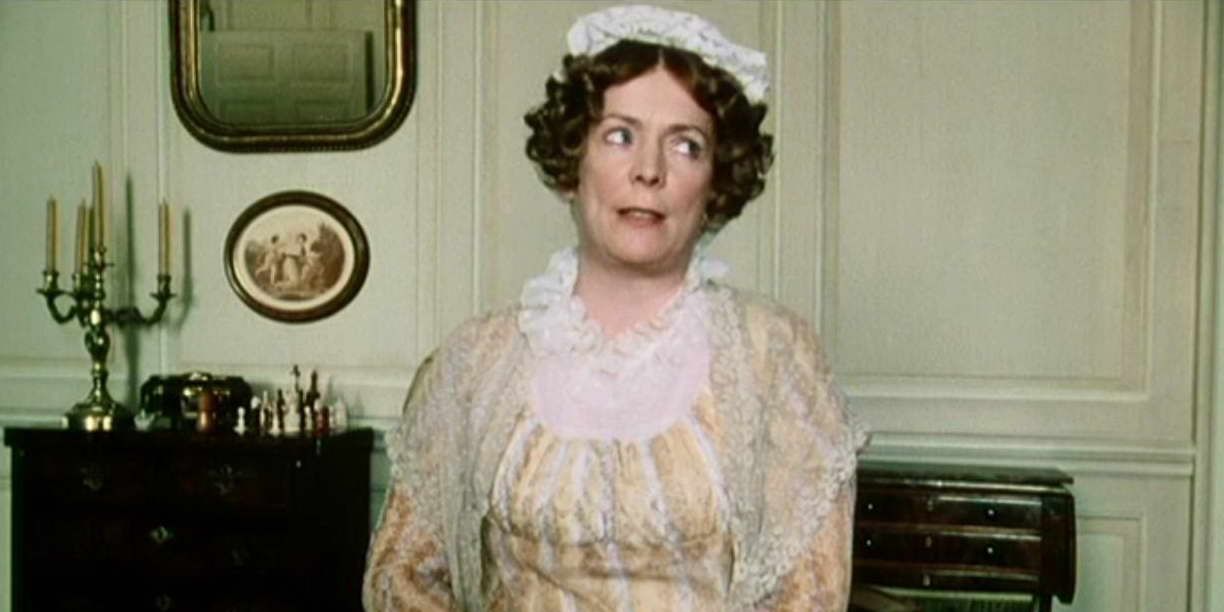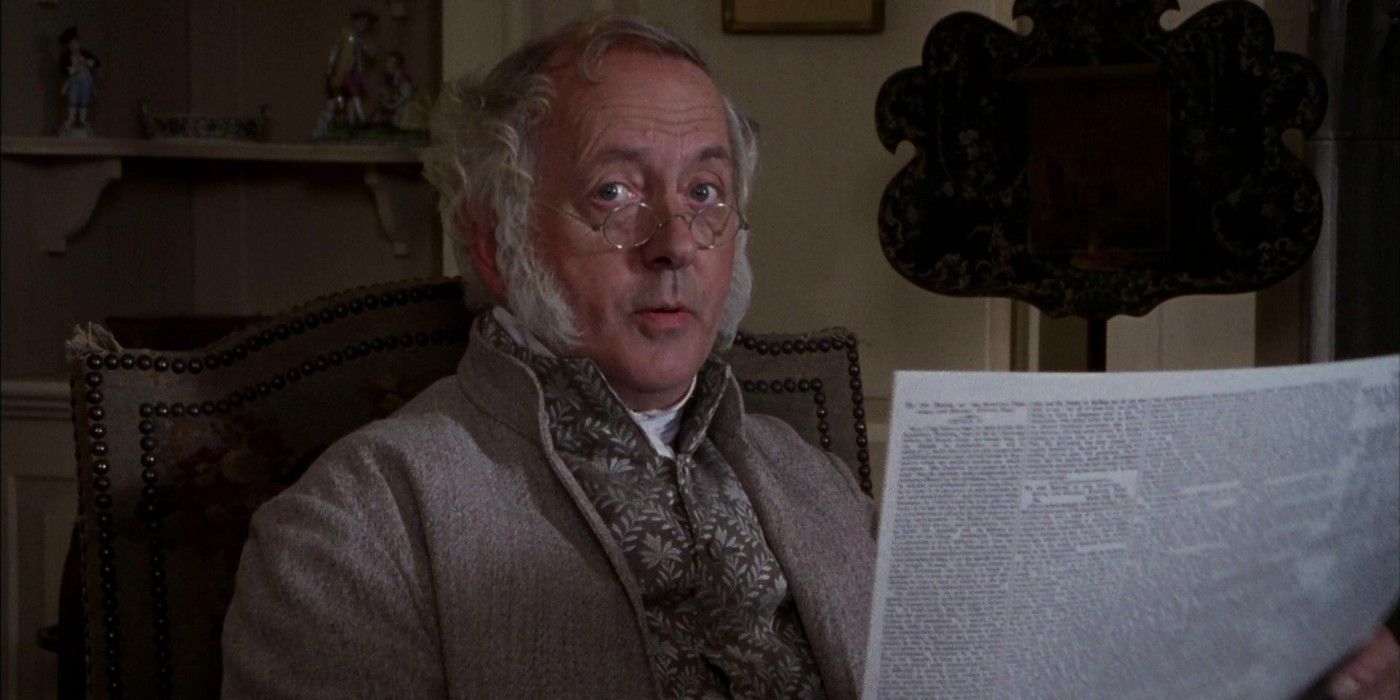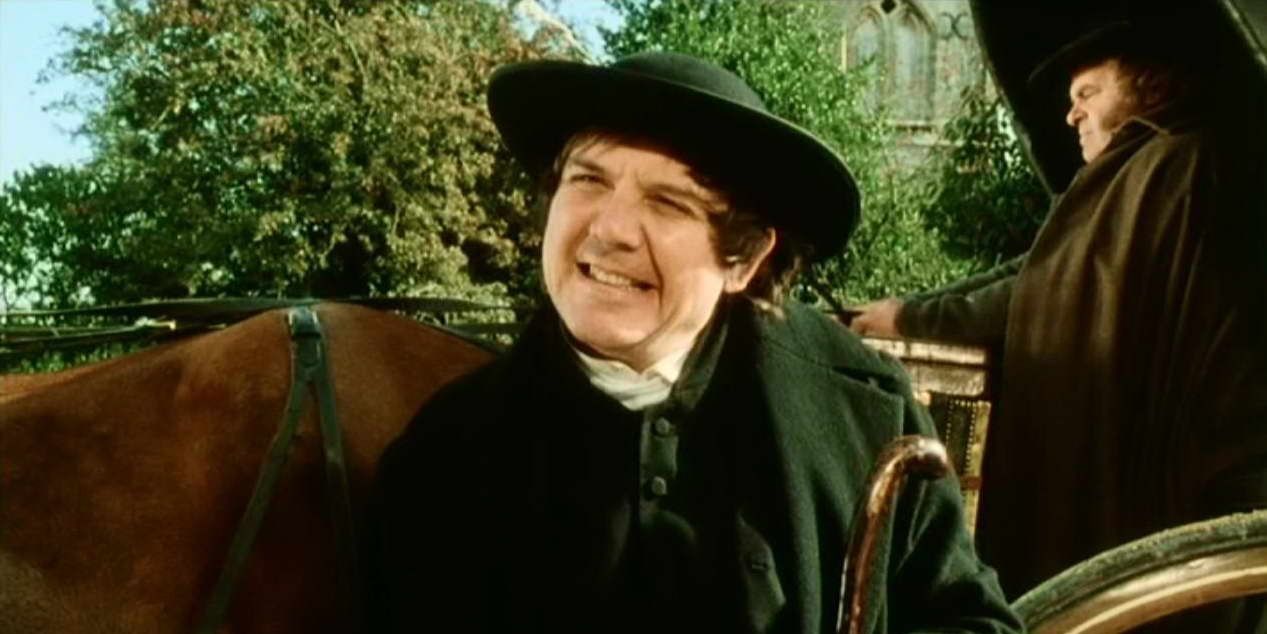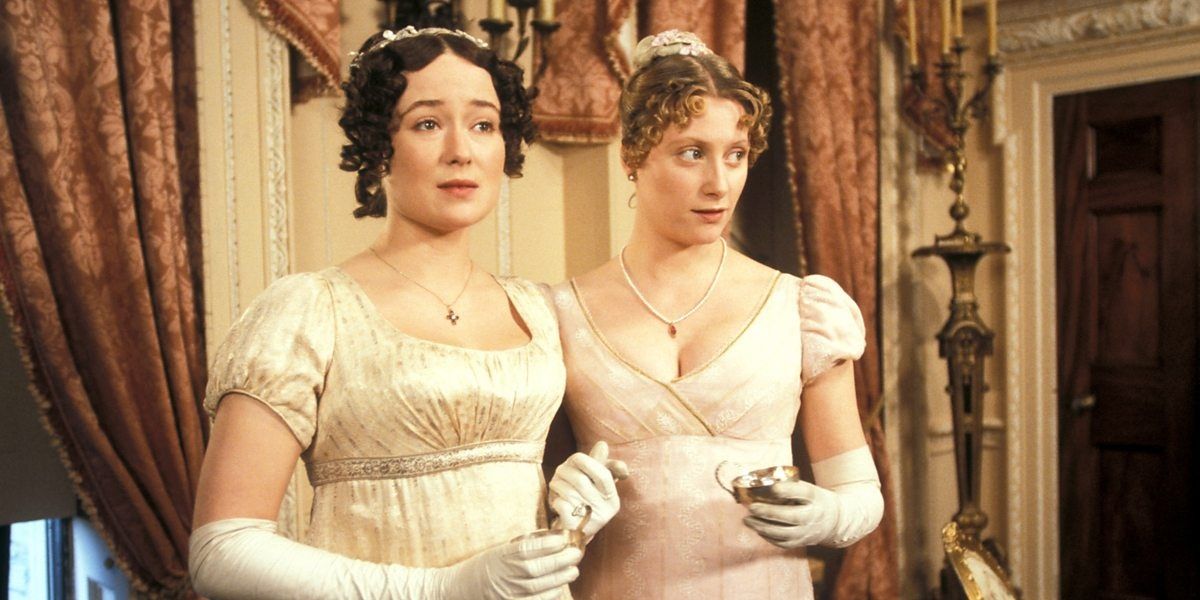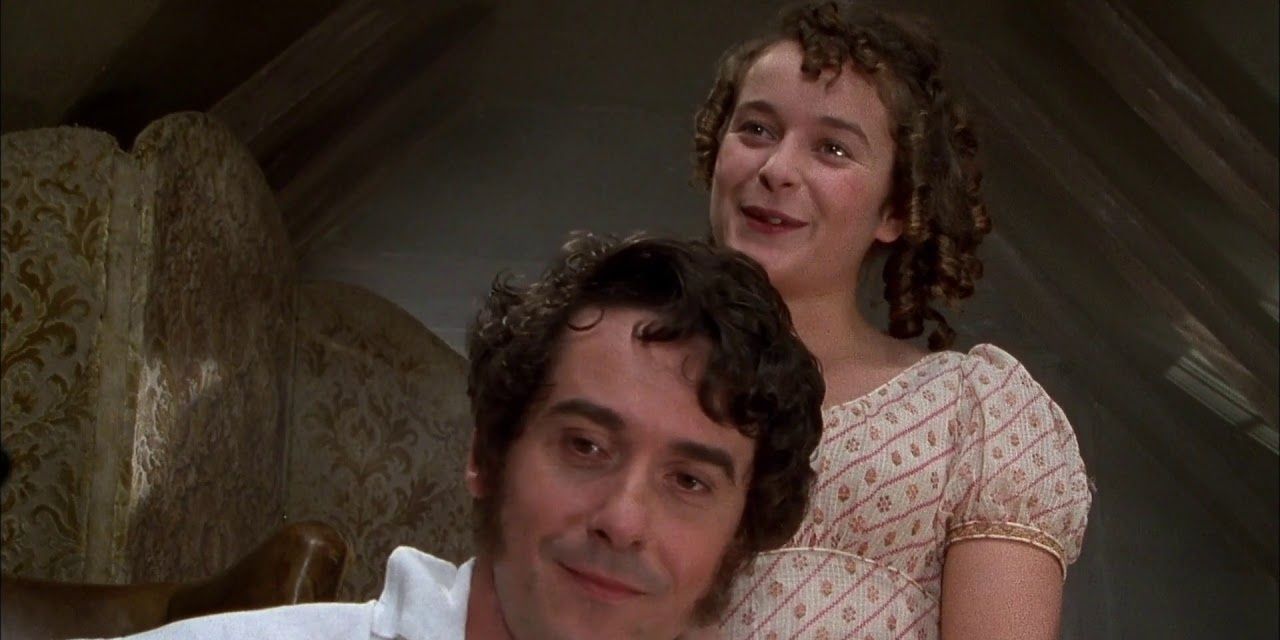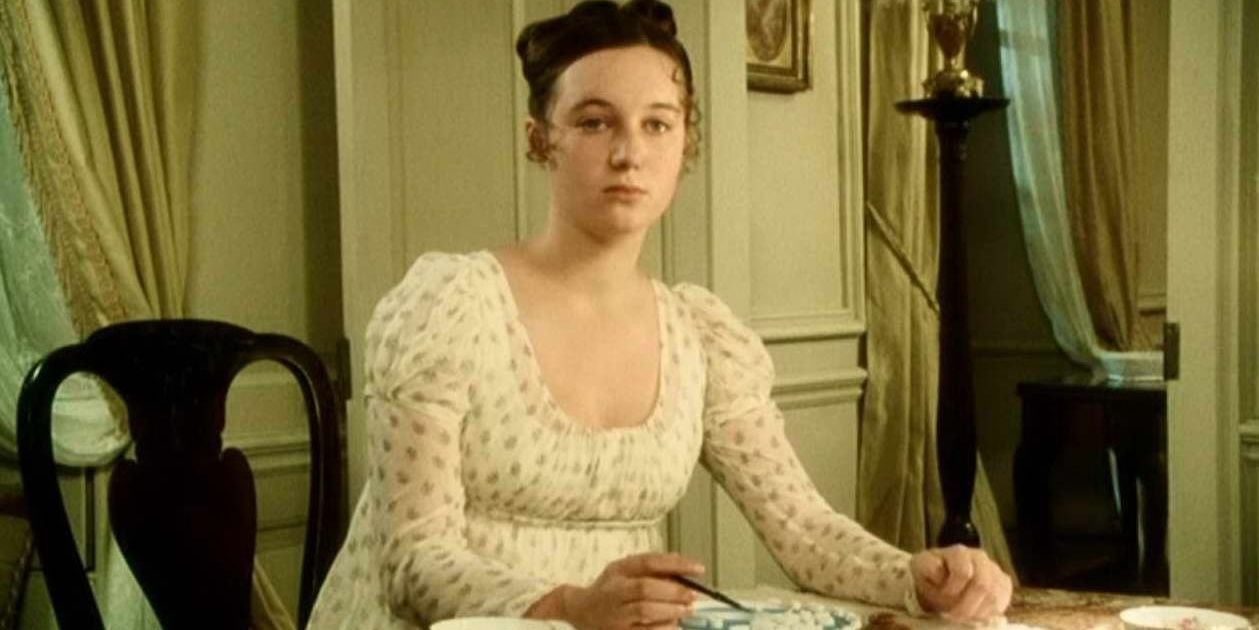Pride and Prejudice isn't just a novel that is propagated throughout most high school English classes. It is also one of Jane Austen's most beloved searing satires of 18th-century English society, and it has been adapted into many films, mini-series, and modern adaptations. The protagonist, Elizabeth Bennett, gives a biting, yet hilarious insight into the life of her family and how they get by in 1800s England.
The BBC's 1995 mini-series is not only known for its phenomenal casting, but also for including a scene that involves Colin Firth and a lake that launched him into intense popularity. Having said that, the film is clever in many other aspects, including costuming and narrative storytelling.
Elizabeth Bennett: The Devil's In The Details
One of the main examples of symbolism is in the costumes. Costume designer Dinah Collins created the costumes to represent the character's social classes, as well as their personalities. With the Bennett daughters, in particular, their outfits are much lighter to "reflect both their zest and innocence."
Elizabeth, however, was dressed in much more earthy tones to demonstrate "her practicality and active nature.” The fact that Elizabeth is the emotional and intellectual anchor of the family is demonstrated through her clothes.
Mr. Darcy: More Screen Time Than The Book
In the novel, the focus is on Elizabeth and her family. Mr. Darcy is mainly described through letters and their social interactions. However, in the film, Darcy is shown doing various things, including an infamous scene in a lake.
According to screenwriter Andrew Davies, it was important to make Darcy more than a description and have him doing things whenever he was on screen. This allowed him to become a more well-rounded character and give the viewers more incentive to root for his romance with Elizabeth.
George Wickham: Appearances Are Deceiving
George Wickham is the main antagonist of the mini-series. He is revealed to be a notorious philanderer that seduces Lydia Bennett. In a particular scene involving Darcy's sister, the two men are seen wearing similar outfits, in particular, neutral colors.
This is interesting because, until Wickham's nature is revealed, the viewer might be lead to believe that the two men are similar, but due to his charm, that Wickham is the "better" man. His past scandals reveal that first impressions can be deceiving.
Mrs. Bennett: Represents The Anxiety Of The Times
Mrs. Bennet is the definition of "extra" as her regular histrionics are a peak source of comedy throughout the mini-series. However, she represents much more than that. Her constant screaming and meltdowns all revolve around anxieties of the period involving women.
For instance, when she is seen collapsed in a chair after the news of Lydia's elopement, although her hysteria is self-serving, it shows how terrified she is for the family's reputation (as well as that of her youngest daughter).
Mr. Bennett: Power From A Chair
Mr. Bennett, besides Elizabeth, is the only other voice of reason. He is constantly the butt of his wife's hysterics and he takes all of it in stride. However, he is at his most confident and reasonable from a chair.
For example, when his wife and Lydia are lamenting that they are not allowed to attend a ball where a soldier's regiment will be attending, he very calmly and firmly stands his ground whilst sitting at the kitchen table. This is where he is the most grounded.
William Collins: Looking Down On The Bennetts
William Collins is a secondary antagonist as he hounds Elizabeth Bennett to get her hand in marriage. His creepy nature is shown in many ways throughout the series. A particular example is in his interactions with the Bennett women.
For example, when he comes to "comfort" them after Lydia runs away (read: gloat), he stands over three of the sisters while they sit demurely. When they try to politely end the conversation, he continues speaking, and they sit back down, demonstrating his control over the situation.
Jane Bennett: Hidden Pregnancy
During the filming of the series, Jane Bennett's actress, Susannah Harker, was visibly pregnant. However, viewers would be hard-pressed to distinguish that fact. This is mainly due to the costume.
During the era of Jane Austen, the "empire waistline" was the main fashion in women's dresses, which emphasized the chest rather than the waist. With everything loose below the chest, it wasn't an issue to cover Harker's bump.
Lydia Bennett: Living On The Wild Side
Lydia Bennett is the original "wild child" that causes her family quite a scare when she almost elopes with George Wickham, which would have sealed her fate as a ruined woman. Thankfully, she and Wickham are talked into getting properly married.
In a scene where she gloats about her new marriage, Wickham rides his horse around her and she happily interacts with it. It's further confirmation that she is rebellious and in touch with a more wild side.
Kitty Bennett: Hidden Intellect
Kitty Bennett does not get a lot of attention throughout the series, as she sticks closer to Lydia and almost acts like a "sidekick" to her. However, she does demonstrate that she can read a social situation.
When Mr. Collins comes to visit them after Lydia runs away, she sees him arrive and is immediately on her guard. While Mary is content to naively believe that he is genuinely concerned, Kitty refuses to stick around and interact with him.
Mary Bennett: Portrayal Is More Reflective Of The Novel
Mary Bennett is the eternal spinster of the five Bennett daughters who has no interest in romance and is devoted to her housework and reading. What is interesting to note is that her portrayal in the mini-series is much closer to the novel.
She is described as having a "pedantic air and conceited manner." These attributes only add to the comedy. In the 2005 adaptation, she is played by Talulah Riley, who is much more conventionally attractive, which makes the comedy less effective.

